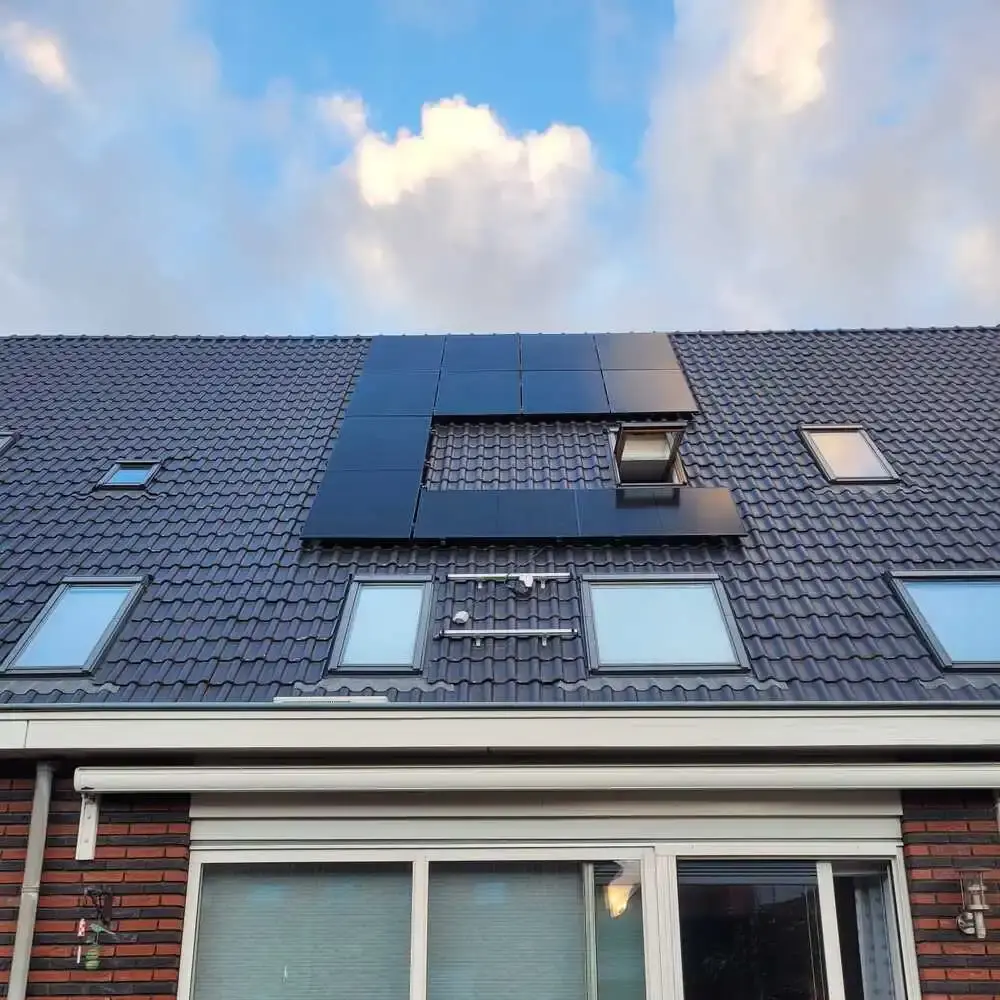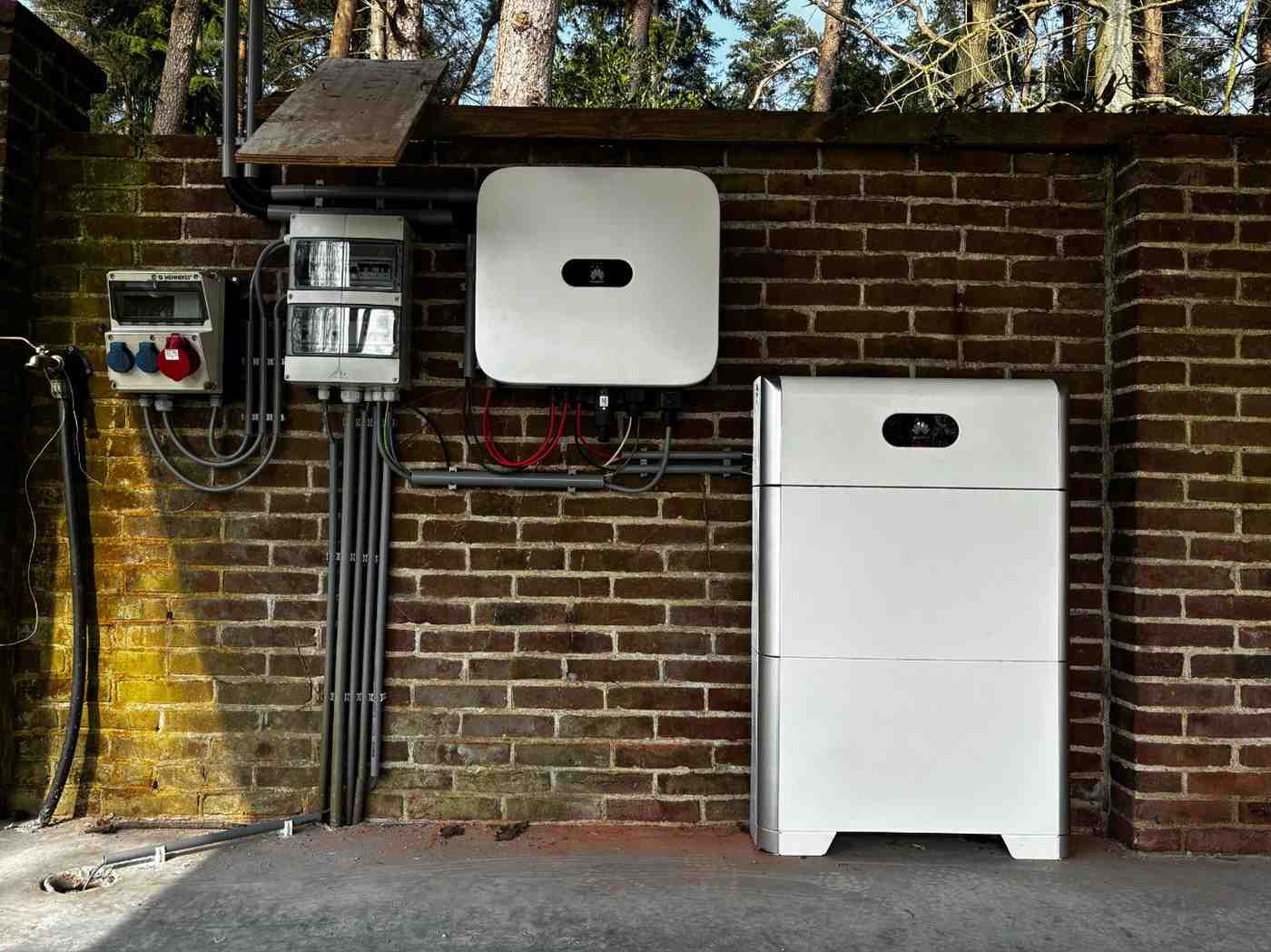
A home battery stores solar power for later use. No more worries about fluctuating energy prices. You are assured of a constant, sustainable energy supply in your home. Shift to Solar offers efficient energy storage solutions tailored to your system and needs. Enquire about the possibilities!

On average, you use about 30% of the energy produced by your solar panels. A waste, right? With a home battery, that goes to over 60 per cent. Instead of 'wasting' this excess energy, your home battery stores it. This way, you always have a supply of self-generated electricity available. Only when the battery is empty do you automatically switch to power from the grid.
Using a home battery during peak hours is advantageous because you can use the solar energy stored during the day when energy prices are higher. This way, you are not dependent on more expensive grid power during peak and evening hours.
The net-metering scheme allows owners of solar panels to offset the electricity they feed back to the grid against their own energy consumption. From 2025, however, the scheme will be phased out, meaning you will gradually receive less compensation. A home battery can then be an attractive solution to increase your own consumption.
Fossil power plants supply grey power to the grid to maintain the balance between electricity supply and demand. This is particularly important when there is a shortage of renewable energy, such as on days without much sun or wind. The home battery is already a sustainable solution for people who do not want to use this fossil energy.
















Installing a home battery starts with deciding what storage capacity you need. How do you choose the best home battery for your needs? Our experienced installers will be happy to advise you. Shift to Solar thoroughly analyses your energy consumption and power production and chooses a battery for maximum efficiency.
Then we provide expert installation, taking into account things like location, temperature and accessibility. So you can be sure of a perfectly working home battery.

Yes, a home battery allows you to feed energy you don't need directly back into the grid. This becomes even more efficient if you combine it with a smart home system and a variable energy contract. This allows your battery to feed energy back to the grid at times when it is most valuable, while drawing energy from the grid when it is cheapest.
If you are interested in a home battery for your solar panels, it is useful to know that prices can fluctuate quite a bit. We therefore recommend you make a specific enquiry with us if you are considering buying one. That way, we can put together an offer that perfectly suits your personal situation and needs. This will ensure that you get a home battery that not only meets your energy needs, but also fits within your budget.
The choice of your home battery is closely related to the capacity of your solar panels. An average home battery can store about 6 kWh. It is important that the capacity of your battery matches what your solar panels can generate. If your solar panels do not produce enough energy to charge a large battery, it is not efficient to invest in a large battery. And if you choose a battery that is too small, you will not be able to store all the energy generated.
At Shift to Solar, we thoroughly analyse your energy consumption and the energy production of your solar panels to find the best battery for you, so you get the maximum efficiency. We can supply almost any type of battery, tailored to your needs.
Yes, a home battery can also help in the winter months, but it is important to have realistic expectations about capacity. Home batteries are not designed to store large amounts of energy for use during the dark winter months. The capacity of current home batteries is usually sufficient for only one or a few days of a household's power consumption.
In case of a power cut, they can temporarily take over the energy supply, provided you have a two-way inverter and a connection from this inverter to the meter box. For an average household, a home battery with a capacity of 3 to 10 kWh is generally enough to serve as an emergency supply for about one day. This setup can probably get you through an entire power outage, provided the battery is sufficiently charged.
There is no grant available to individuals looking to invest in a home battery or accumulator. Business users are luckier; they can benefit from the Energy Investment Allowance (EIA). This scheme offers tax benefits to companies investing in energy-saving technologies, including home batteries. By using the EIA, businesses can deduct part of their investment from their taxable income.
"*" indicates required fields